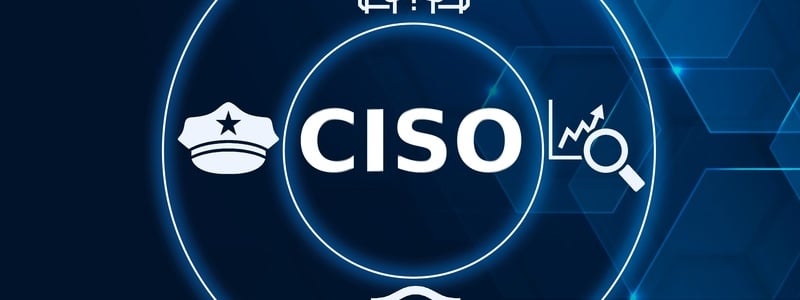
Maximize Your Workforce
Tap into Top Talent,
Tap into Top Talent,
Part-Time On-Demand.
Scale your team efficiently by bringing in part-time specialists who deliver
targeted expertise precisely when your business needs it most.
Accelerance Fractional Team
Learn more about the team!

About Fractional Jobs
Why Fractional Jobs Make Business Sense
Fractional jobs, or part-time roles, offer organizations a smart and flexible approach to staffing. By bringing in specialists for specific tasks or projects on a part-time basis, companies can save on costs while accessing top talent. Leveraging fractional positions can be a great way to bring in excellent talent even when you don’t have the budget or workload to bring them in on a full-time basis.
Leverage these benefits of fractional roles:
- Cost Savings: Fractional employees typically cost less than full-time hires due to reduced salaries, benefits, and overhead.
- Specialized Expertise: Companies can tap into specialized skills on an as-needed basis, without the commitment of a full-time role.
- Flexibility: Part-time workers can adapt to fluctuating workloads, allowing companies to ramp up or scale back as needed.
- Reduced Overhead: Fractional employees often work remotely, minimizing the need for office space and associated costs.
Important Considerations
Don’t expect fractional positions to micromanage or be in the weeds with project details. They need to devote their time to overall productivity and efficiency of the team so you get the most of their limited availability. Make sure you carefully define roles, set clear expectations, and establish effective communication. Don’t lead anyone on - if you have no plans to ever take a fractional role to full-time, make that clear. Some experts will take on fractional roles with plans to transition to full-time when possible, so be up front about what your plans and realistic needs are.
Overall, fractional work and generalist roles are a valuable tool for organizations seeking to maximize efficiency, reduce costs, and stay agile in today's competitive business landscape. Check out some of the fractional positions Accelerance can help you fill.
Available Fractional Positions
By analyzing your existing staff, you can better determine which fractional positions will address your needs. Dive into the variety of roles that can enhance your team’s capabilities.
-
Fractional Chief Product Officer
Fractional Chief Product Officer
Talk To UsFractional Chief Product Officers (FCPO) are part-time product leaders who provide strategic direction and leadership for product initiatives. They offer a cost-effective solution for startups and small and medium-sized organizations that need high-level product leadership but don't have the budget or workload to justify a full-time executive. They can be engaged on a project basis or through a retainer agreement.
Their responsibilities typically include:
- Develop and implement product strategies aligned with business goals: The CPO crafts a comprehensive vision for the company's product portfolio, ensuring each product aligns with and supports overarching business objectives. They translate this vision into actionable strategies, determining the best ways to meet customer needs and drive market growth.
- Lead product roadmaps and prioritize initiatives for successful execution: The CPO sets the direction for product development, outlining a clear roadmap with milestones and deadlines. They skillfully prioritize projects, balancing resources and focusing efforts on initiatives that will deliver the greatest impact and value.
- Oversee product development processes and ensure product quality: The CPO maintains a rigorous quality control system, ensuring each stage of development adheres to high standards. They work closely with engineering teams to address issues promptly, maintaining a focus on delivering exceptional user experiences.
- Analyze market trends and identify new product opportunities: The CPO is a market expert, constantly monitoring industry trends and competitor landscapes. They leverage this knowledge to identify untapped opportunities for innovation, ensuring the company stays ahead of the curve.
- Collaborate with cross-functional teams (engineering, marketing, sales) for product success: The CPO acts as a bridge, fostering strong communication and cooperation across departments. They ensure everyone understands the product vision, promoting alignment and working together to achieve common goals.
- Manage and mentor in-house product teams (if applicable): The CPO nurtures a high-performing product team, providing guidance, mentorship, and opportunities for professional growth. They create a culture of innovation, empowering their team members to contribute their unique expertise and ideas.

-
Fractional Chief Technology Officer
Fractional Chief Technology Officer
Get StartedFractional Chief Technology Officers (FCTO) are part-time technology leaders who provide strategic direction and leadership for technology initiatives. They offer a cost-effective solution for startups, and small and medium-size organizations that need high-level technology leadership but don't have the budget or workload to justify a full-time executive. They can be engaged on a project basis or through a retainer agreement.Their responsibilities typically include:- Develop and implement technology strategies aligned with product objectives and requirements: The CTO crafts a comprehensive technology roadmap that directly supports the company's product goals and user needs. They translate this roadmap into actionable strategies, outlining the technological solutions needed to achieve product success and business growth.
- Oversee technology initiatives and ensure successful project execution: The CTO manages the entire lifecycle of technology projects, from conception to deployment. They establish clear timelines, allocate resources effectively, and monitor progress to ensure projects are delivered on time and within budget, while meeting or exceeding quality expectations.
- Advise on technology investments and acquisitions: The CTO provides expert guidance on technology-related financial decisions, evaluating potential investments and acquisitions for their strategic fit and return on investment. They analyze the long-term impact of these decisions on the company's technological capabilities and overall business strategy.
- Stay up-to-date on emerging technologies and industry trends: The CTO is a thought leader in the technology space, constantly monitoring emerging trends and disruptive technologies. They assess the potential impact of these developments on the company's competitive landscape, identifying opportunities to innovate and stay ahead of the curve.
- Manage IT operations (if applicable): The CTO oversees the day-to-day operations of the company's IT infrastructure, ensuring its reliability, security, and efficiency. They implement best practices for system maintenance, data management, and cybersecurity to protect the company's digital assets and sensitive information. A fractional position obviously takes a higher view of operations since they aren’t on hand every day.
- Manage and mentor in-house technology teams (if applicable): The CTO fosters a high-performing technology team, providing guidance, mentorship, and opportunities for professional development. They create a culture of innovation and continuous learning, empowering team members to contribute their unique expertise and ideas to drive technological advancement.

-
Fractional Chief Information Officer
Fractional Chief Information Officer
Contact UsA Fractional Chief Information Officers (FCIO) are part-time technology leaders who provide strategic direction and leadership for business technology initiatives. They offer a cost-effective solution for startups, and small and medium-size organizations that need high-level IT leadership but don't have the budget or workload to justify a full-time executive. They can be engaged on a project basis or through a retainer agreement.Their responsibilities typically include:- Develop and implement IT strategies aligned with business and operational goals: The CIO crafts a comprehensive IT roadmap that directly supports the company's broader objectives, ensuring technology solutions enhance efficiency, productivity, and overall business performance. They translate this roadmap into actionable strategies, outlining the technological initiatives needed to achieve specific business outcomes.
- Prioritize and manage business technology initiatives to ensure successful project execution: The CIO oversees the entire lifecycle of IT projects, from planning and budgeting to implementation and evaluation. They prioritize initiatives based on their strategic impact, allocate resources effectively, and monitor progress to ensure projects are delivered on time, within budget, and meet or exceed expectations.
- Oversee IT operations and infrastructure: The CIO is responsible for the day-to-day management of the company's IT infrastructure, including hardware, software, networks, and data centers. They ensure the reliability, security, and efficiency of these systems, implementing best practices for maintenance, upgrades, and disaster recovery.
- Select and implement new technologies: The CIO evaluates emerging technologies and assesses their potential to improve business processes, enhance customer experiences, or create competitive advantages. They make informed decisions about adopting new solutions, considering factors like cost, functionality, integration, and long-term value.
- Negotiate with vendors: The CIO manages relationships with technology vendors, negotiating contracts for hardware, software, and services to ensure the company receives the best possible value. They also monitor vendor performance to ensure they meet contractual obligations and deliver high-quality products and support.
- Manage IT budgets: The CIO develops and oversees the IT department's budget, ensuring financial resources are allocated efficiently and effectively. They track spending, forecast future needs, and make strategic decisions about investments in technology to maximize the return on investment.
- Manage and mentor in-house IT teams (if applicable): The CIO fosters a high-performing IT team, providing guidance, mentorship, and opportunities for professional development. They create a collaborative and innovative work environment, empowering team members to contribute their unique skills and perspectives to solve complex technological challenges.

-
Fractional Chief Information Security Officer
Fractional Chief Information Security Officer
Let's TalkFractional Chief Information Security Officers (FCISO) are part-time cybersecurity leaders who provide strategic direction and oversee information security initiatives. They offer a cost-effective solution for startups, and small and medium-size organizations that need high-level security expertise but don't have the budget or workload to justify a full-time executive. They can be engaged on a project basis or through a retainer agreement. Knowing that you have a qualified cybersecurity expert on your side can give you peace of mind. You can focus on running your business, knowing that your data and systems are safe.
Their responsibilities typically include:- Develop and implement a comprehensive cybersecurity strategy aligned with business goals and compliance requirements: The CISO creates a holistic security framework that protects the organization's digital assets while supporting its overall objectives. This strategy encompasses policies, procedures, and technologies to address a wide range of threats and ensure compliance with industry regulations.
- Oversee security operations and incident response procedures: The CISO leads a team of security professionals who monitor systems, detect threats, and respond to incidents swiftly. They establish well-defined incident response plans to minimize damage, contain breaches, and restore normal operations as quickly as possible.
- Manage security risks and vulnerabilities (re. infrastructure, data, software): The CISO identifies, assesses, and prioritizes potential risks to the organization's infrastructure, data, and software. They develop and implement mitigation strategies, such as patching vulnerabilities, deploying security tools, and implementing access controls, to reduce the likelihood and impact of security incidents.
- Evaluate and implement security technologies: The CISO stays informed about the latest security technologies and assesses their suitability for the organization's specific needs. They make informed decisions about adopting new solutions, considering factors like cost, effectiveness, integration, and ease of use.
- Stay up-to-date on evolving security threats and best practices: The CISO continuously monitors the threat landscape, tracking emerging attack vectors, malware, and vulnerabilities. They participate in industry forums, attend conferences, and engage with other security professionals to stay ahead of evolving threats and adopt best practices for defense.
- Educate and train employees on cybersecurity awareness: The CISO recognizes that employees are a critical line of defense against cyberattacks. They develop and implement comprehensive security awareness training programs to educate employees about common threats, safe practices, and their role in protecting company assets.
- Advise on security implications of new technologies and business initiatives: The CISO provides expert guidance on the security risks and considerations associated with new technologies or business projects. They work closely with other departments to ensure that security is integrated into the planning and implementation stages of any new initiative.
- Manage and mentor internal security teams (if applicable): The CISO leads and develops a high-performing security team, fostering a culture of collaboration, continuous learning, and proactive risk management. They provide mentorship and support to team members, empowering them to grow their skills and contribute to the organization's overall security posture.

-
Fractional Security Engineer
Fractional Security Engineer
Get In TouchFor many businesses, a full-time security engineer might feel like overkill, while DIY security often leaves vulnerabilities exposed. A fractional security engineer might be the answer.Their responsibilities typically include:- Targeted Expertise: Unlike generalists, fractional engineers specialize in specific areas like penetration testing, incident response, or cloud security. You hire the exact skills you need, avoiding the expense of a jack-of-all-trades who might be weaker in your critical areas.
- Scalability on Demand: As your security needs evolve, so can your fractional engineer's engagement. Need an extra pair of hands for a critical project? Increase their hours. Security calmer? Scale back seamlessly, optimizing your cost-efficiency.
- Fresh Perspective: Fractional engineers bring diverse experience from working across different industries and companies. This outsider's view can expose blind spots in your existing security posture and lead to innovative solutions tailored to your unique needs.
- Guidance and Mentorship: Fractional engineers not only tackle immediate issues but also act as mentors, building your internal security expertise. They train your team, recommend best practices, and guide you in developing a robust long-term security strategy.
- Cost-Effectiveness: Compared to a full-time CISO or team, fractional engineers offer significant cost savings. You pay only for the time and expertise you need, avoiding hefty salaries and benefits packages.
- Flexibility and Efficiency: Fractional engineers often work remotely, providing access to top talent regardless of location. They integrate seamlessly into your existing workflow, avoiding disruptions and delays.
Hiring a fractional engineer doesn't just improve your security posture; it brings peace of mind. You gain experienced support, knowing your critical systems are monitored and protected by a dedicated professional.

-
Fractional Security Analyst
Fractional Security Analyst
Get Started TodayLike all other fractional positions, fractional analysts are available as little or much as your organization needs them. They may be individuals or a team, bridging the gap between your security needs and available resources. They are essentially cybersecurity experts hired on a part-time or contract basis, offering specialized skills and experience to organizations that might not require a full-time analyst but still need top-notch security expertise.
Some of the services fractional analysts can offer your organization include:- Threat detection and analysis, including monitoring security systems, analyzing incident data and conducting threat intelligence research.
- Vulnerability assessment and pen testing to find weaknesses and vulnerabilities in your networks, as well as provide recommendations for fixes.
- Security policy and procedure development, including helping train employees on those policies and procedures and assisting with compliance, both industry and government.
- Incident response and forensics, including identifying attackers and providing recommendations for mitigation.
- Security engineering and architecture, implementation of security tools and technologies.

Fractional Chief Product Officer
Fractional Chief Product Officers (FCPO) are part-time product leaders who provide strategic direction and leadership for product initiatives. They offer a cost-effective solution for startups and small and medium-sized organizations that need high-level product leadership but don't have the budget or workload to justify a full-time executive. They can be engaged on a project basis or through a retainer agreement.
Their responsibilities typically include:
- Develop and implement product strategies aligned with business goals: The CPO crafts a comprehensive vision for the company's product portfolio, ensuring each product aligns with and supports overarching business objectives. They translate this vision into actionable strategies, determining the best ways to meet customer needs and drive market growth.
- Lead product roadmaps and prioritize initiatives for successful execution: The CPO sets the direction for product development, outlining a clear roadmap with milestones and deadlines. They skillfully prioritize projects, balancing resources and focusing efforts on initiatives that will deliver the greatest impact and value.
- Oversee product development processes and ensure product quality: The CPO maintains a rigorous quality control system, ensuring each stage of development adheres to high standards. They work closely with engineering teams to address issues promptly, maintaining a focus on delivering exceptional user experiences.
- Analyze market trends and identify new product opportunities: The CPO is a market expert, constantly monitoring industry trends and competitor landscapes. They leverage this knowledge to identify untapped opportunities for innovation, ensuring the company stays ahead of the curve.
- Collaborate with cross-functional teams (engineering, marketing, sales) for product success: The CPO acts as a bridge, fostering strong communication and cooperation across departments. They ensure everyone understands the product vision, promoting alignment and working together to achieve common goals.
- Manage and mentor in-house product teams (if applicable): The CPO nurtures a high-performing product team, providing guidance, mentorship, and opportunities for professional growth. They create a culture of innovation, empowering their team members to contribute their unique expertise and ideas.

Fractional Chief Technology Officer
Fractional Chief Technology Officers (FCTO) are part-time technology leaders who provide strategic direction and leadership for technology initiatives. They offer a cost-effective solution for startups, and small and medium-size organizations that need high-level technology leadership but don't have the budget or workload to justify a full-time executive. They can be engaged on a project basis or through a retainer agreement.
Their responsibilities typically include:
- Develop and implement technology strategies aligned with product objectives and requirements: The CTO crafts a comprehensive technology roadmap that directly supports the company's product goals and user needs. They translate this roadmap into actionable strategies, outlining the technological solutions needed to achieve product success and business growth.
- Oversee technology initiatives and ensure successful project execution: The CTO manages the entire lifecycle of technology projects, from conception to deployment. They establish clear timelines, allocate resources effectively, and monitor progress to ensure projects are delivered on time and within budget, while meeting or exceeding quality expectations.
- Advise on technology investments and acquisitions: The CTO provides expert guidance on technology-related financial decisions, evaluating potential investments and acquisitions for their strategic fit and return on investment. They analyze the long-term impact of these decisions on the company's technological capabilities and overall business strategy.
- Stay up-to-date on emerging technologies and industry trends: The CTO is a thought leader in the technology space, constantly monitoring emerging trends and disruptive technologies. They assess the potential impact of these developments on the company's competitive landscape, identifying opportunities to innovate and stay ahead of the curve.
- Manage IT operations (if applicable): The CTO oversees the day-to-day operations of the company's IT infrastructure, ensuring its reliability, security, and efficiency. They implement best practices for system maintenance, data management, and cybersecurity to protect the company's digital assets and sensitive information. A fractional position obviously takes a higher view of operations since they aren’t on hand every day.
- Manage and mentor in-house technology teams (if applicable): The CTO fosters a high-performing technology team, providing guidance, mentorship, and opportunities for professional development. They create a culture of innovation and continuous learning, empowering team members to contribute their unique expertise and ideas to drive technological advancement.

Fractional Chief Information Officer
A Fractional Chief Information Officers (FCIO) are part-time technology leaders who provide strategic direction and leadership for business technology initiatives. They offer a cost-effective solution for startups, and small and medium-size organizations that need high-level IT leadership but don't have the budget or workload to justify a full-time executive. They can be engaged on a project basis or through a retainer agreement.
Their responsibilities typically include:
- Develop and implement IT strategies aligned with business and operational goals: The CIO crafts a comprehensive IT roadmap that directly supports the company's broader objectives, ensuring technology solutions enhance efficiency, productivity, and overall business performance. They translate this roadmap into actionable strategies, outlining the technological initiatives needed to achieve specific business outcomes.
- Prioritize and manage business technology initiatives to ensure successful project execution: The CIO oversees the entire lifecycle of IT projects, from planning and budgeting to implementation and evaluation. They prioritize initiatives based on their strategic impact, allocate resources effectively, and monitor progress to ensure projects are delivered on time, within budget, and meet or exceed expectations.
- Oversee IT operations and infrastructure: The CIO is responsible for the day-to-day management of the company's IT infrastructure, including hardware, software, networks, and data centers. They ensure the reliability, security, and efficiency of these systems, implementing best practices for maintenance, upgrades, and disaster recovery.
- Select and implement new technologies: The CIO evaluates emerging technologies and assesses their potential to improve business processes, enhance customer experiences, or create competitive advantages. They make informed decisions about adopting new solutions, considering factors like cost, functionality, integration, and long-term value.
- Negotiate with vendors: The CIO manages relationships with technology vendors, negotiating contracts for hardware, software, and services to ensure the company receives the best possible value. They also monitor vendor performance to ensure they meet contractual obligations and deliver high-quality products and support.
- Manage IT budgets: The CIO develops and oversees the IT department's budget, ensuring financial resources are allocated efficiently and effectively. They track spending, forecast future needs, and make strategic decisions about investments in technology to maximize the return on investment.
- Manage and mentor in-house IT teams (if applicable): The CIO fosters a high-performing IT team, providing guidance, mentorship, and opportunities for professional development. They create a collaborative and innovative work environment, empowering team members to contribute their unique skills and perspectives to solve complex technological challenges.

Fractional Chief Information Security Officer
Fractional Chief Information Security Officers (FCISO) are part-time cybersecurity leaders who provide strategic direction and oversee information security initiatives. They offer a cost-effective solution for startups, and small and medium-size organizations that need high-level security expertise but don't have the budget or workload to justify a full-time executive. They can be engaged on a project basis or through a retainer agreement. Knowing that you have a qualified cybersecurity expert on your side can give you peace of mind. You can focus on running your business, knowing that your data and systems are safe.
Their responsibilities typically include:
Their responsibilities typically include:
- Develop and implement a comprehensive cybersecurity strategy aligned with business goals and compliance requirements: The CISO creates a holistic security framework that protects the organization's digital assets while supporting its overall objectives. This strategy encompasses policies, procedures, and technologies to address a wide range of threats and ensure compliance with industry regulations.
- Oversee security operations and incident response procedures: The CISO leads a team of security professionals who monitor systems, detect threats, and respond to incidents swiftly. They establish well-defined incident response plans to minimize damage, contain breaches, and restore normal operations as quickly as possible.
- Manage security risks and vulnerabilities (re. infrastructure, data, software): The CISO identifies, assesses, and prioritizes potential risks to the organization's infrastructure, data, and software. They develop and implement mitigation strategies, such as patching vulnerabilities, deploying security tools, and implementing access controls, to reduce the likelihood and impact of security incidents.
- Evaluate and implement security technologies: The CISO stays informed about the latest security technologies and assesses their suitability for the organization's specific needs. They make informed decisions about adopting new solutions, considering factors like cost, effectiveness, integration, and ease of use.
- Stay up-to-date on evolving security threats and best practices: The CISO continuously monitors the threat landscape, tracking emerging attack vectors, malware, and vulnerabilities. They participate in industry forums, attend conferences, and engage with other security professionals to stay ahead of evolving threats and adopt best practices for defense.
- Educate and train employees on cybersecurity awareness: The CISO recognizes that employees are a critical line of defense against cyberattacks. They develop and implement comprehensive security awareness training programs to educate employees about common threats, safe practices, and their role in protecting company assets.
- Advise on security implications of new technologies and business initiatives: The CISO provides expert guidance on the security risks and considerations associated with new technologies or business projects. They work closely with other departments to ensure that security is integrated into the planning and implementation stages of any new initiative.
- Manage and mentor internal security teams (if applicable): The CISO leads and develops a high-performing security team, fostering a culture of collaboration, continuous learning, and proactive risk management. They provide mentorship and support to team members, empowering them to grow their skills and contribute to the organization's overall security posture.

Fractional Security Engineer
For many businesses, a full-time security engineer might feel like overkill, while DIY security often leaves vulnerabilities exposed. A fractional security engineer might be the answer.
Their responsibilities typically include:
- Targeted Expertise: Unlike generalists, fractional engineers specialize in specific areas like penetration testing, incident response, or cloud security. You hire the exact skills you need, avoiding the expense of a jack-of-all-trades who might be weaker in your critical areas.
- Scalability on Demand: As your security needs evolve, so can your fractional engineer's engagement. Need an extra pair of hands for a critical project? Increase their hours. Security calmer? Scale back seamlessly, optimizing your cost-efficiency.
- Fresh Perspective: Fractional engineers bring diverse experience from working across different industries and companies. This outsider's view can expose blind spots in your existing security posture and lead to innovative solutions tailored to your unique needs.
- Guidance and Mentorship: Fractional engineers not only tackle immediate issues but also act as mentors, building your internal security expertise. They train your team, recommend best practices, and guide you in developing a robust long-term security strategy.
- Cost-Effectiveness: Compared to a full-time CISO or team, fractional engineers offer significant cost savings. You pay only for the time and expertise you need, avoiding hefty salaries and benefits packages.
- Flexibility and Efficiency: Fractional engineers often work remotely, providing access to top talent regardless of location. They integrate seamlessly into your existing workflow, avoiding disruptions and delays.
Hiring a fractional engineer doesn't just improve your security posture; it brings peace of mind. You gain experienced support, knowing your critical systems are monitored and protected by a dedicated professional.

Fractional Security Analyst
Like all other fractional positions, fractional analysts are available as little or much as your organization needs them. They may be individuals or a team, bridging the gap between your security needs and available resources. They are essentially cybersecurity experts hired on a part-time or contract basis, offering specialized skills and experience to organizations that might not require a full-time analyst but still need top-notch security expertise.
Some of the services fractional analysts can offer your organization include:
- Threat detection and analysis, including monitoring security systems, analyzing incident data and conducting threat intelligence research.
- Vulnerability assessment and pen testing to find weaknesses and vulnerabilities in your networks, as well as provide recommendations for fixes.
- Security policy and procedure development, including helping train employees on those policies and procedures and assisting with compliance, both industry and government.
- Incident response and forensics, including identifying attackers and providing recommendations for mitigation.
- Security engineering and architecture, implementation of security tools and technologies.

Industries We Serve
Cybersecurity solutions cater to a diverse range of industries to safeguard all digital assets.
Finance and Banking
Healthcare
Government and Defense

Energy and Utilities

Information Technology
Retail and E-commerce

Manufacturing
Telecommunications
Education
Transportation and Logistics

Critical Infrastructure
Legal Services
Media and Entertainment

Aerospace and Aviation

Hospitality and Tourism
Frequently Asked Questions
What are fractional jobs, and why should I consider them for my organization?
Fractional jobs, or part-time roles, are positions where specialists work on a part-time basis to address specific tasks or projects. They offer a flexible staffing solution that helps organizations save on costs while accessing top talent. By hiring fractional employees, companies can benefit from specialized expertise and flexibility without the financial commitment of full-time hires.
How do fractional roles help in cost savings for a company?
Fractional employees typically cost less than full-time hires due to reduced salaries, benefits, and overhead. Since they work part-time and often remotely, companies can save on expenses related to office space, equipment, and other associated costs.
What should I consider when setting up a fractional position in my company?
When establishing a fractional position, it’s important to define the role clearly, set expectations, and communicate effectively. Fractional employees should focus on overall productivity and efficiency, not micromanagement. Be upfront about whether there is potential for the role to transition into a full-time position, as some candidates may seek this opportunity.
What are the typical responsibilities of a Fractional Chief Product Officer (FCPO)?
A Fractional Chief Product Officer provides strategic direction for product initiatives, develops and implements product strategies, leads product roadmaps, oversees development processes, and analyzes market trends. They also collaborate with cross-functional teams and manage in-house product teams if applicable.
How does a Fractional Chief Technology Officer (FCTO) support technology initiatives in a company?
A Fractional Chief Technology Officer develops and implements technology strategies, oversees technology projects, advises on technology investments, and manages IT operations. They stay updated on emerging technologies and manage IT budgets. Their role is to ensure that technology aligns with product objectives and business goals.
What are the benefits of hiring a Fractional Security Engineer or Security Analyst?
Fractional Security Engineers and Analysts provide targeted expertise, scalability, and cost-effectiveness. They offer specialized skills in areas such as penetration testing and threat detection, provide a fresh perspective on security posture, and can mentor internal teams. Their flexible engagement allows companies to optimize their security measures without the expense of full-time hires.
Ready to chat with an expert about fractional positions?
Explore how Accelerance can fill your organization's talent gaps with fractional positions. Our specialists are ready to discuss and provide tailored solutions that bring top talent to your team without the full-time commitment.


.png?width=300&name=Copy%20of%20WEBSITE%20Stop%20Chasing%20Low%20Hourly%20Rates%20Unlock%20the%20True%20Value%20of%20Offshore%20Development%20(450%20x%20253%20px).png)



